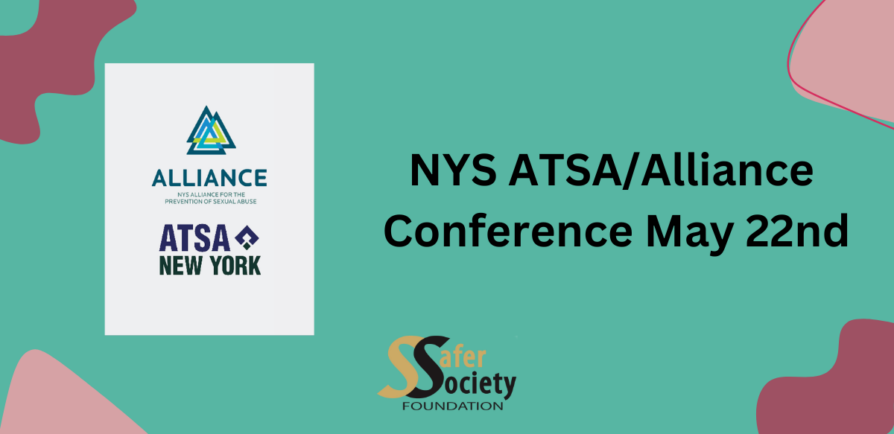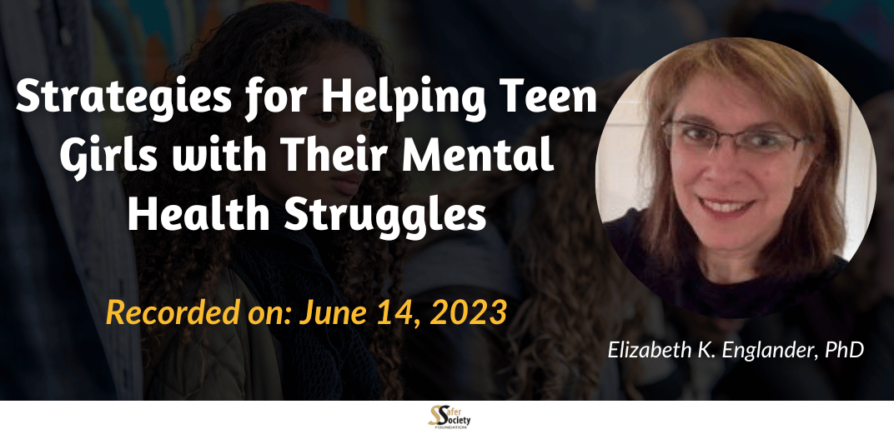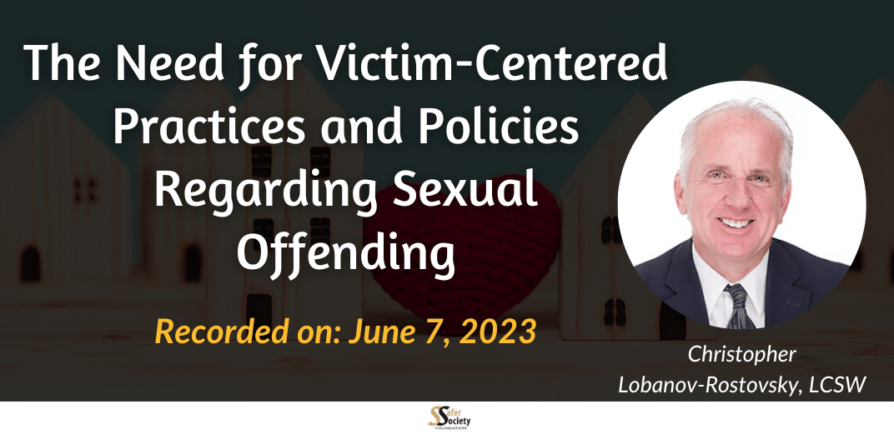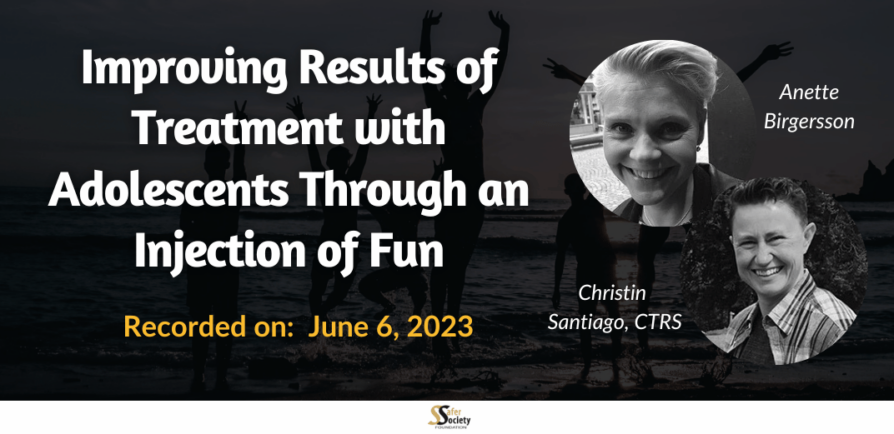“Young people are telling us that they are in crisis.” – Dr. Kathleen Ethier In the fall of 2021, the CDC gave adolescents in high …
Train with Safer Society on Adolescent Social Media Usage
Social media usage is higher than ever and is part of most people’s daily routine — regardless of age. However, many children and adolescents are …
NYS ATSA/Alliance Conference May 22nd
Safer Society Press will be the bookseller for the New York State ATSA and Alliance Joint Conference in Saratoga Springs, NY, which runs May 22-24. …
United Way – Race for the Rest of Us
A big thank you to United Way for hosting the 0.5k “Race for the Rest of Us” event on Sunday, May 7th! It was a …
Safer Society Joins Sponsors at Howard Center’s First In-Person Annual Conference Since Pandemic
On April 19, the Howard Center of Burlington, Vermont, hosted their first in-person annual conference since the pandemic. The day-long event was held at the …
Vermont Ends Child Marriage
According to a study conducted by Unchained at Last, nearly 300,000 children under the age of 18 were legally married in the United States since …
Strategies for Helping Teen Girls with Their Mental Health Struggles
A survey by the Centers for Disease Control and Prevention that was published in early February 2023 found that, in 2021 (at the height of the pandemic), 57% of high school girls reported experiencing “persistent feelings of sadness or hopelessness in the past year,” up from 36% in 2011. That’s nearly twice as high as the 29% of males who reported having those feelings in 2021. What’s worse, 30% of the girls surveyed reported seriously considering suicide and 13% attempted suicide one or more times in 2021.
The Need For Victim-Centered Practices and Policies Regarding Sexual Offending
Though well-intentioned, policies and practices regarding sexual offending that are advocated by lawmakers and their constituents all too often result in efforts that are counterproductive for the long-term safety of the community. Just as problematically, they fail to adequately take into account the needs of the victims of abuse and do not adequately promote actions that can help individuals who have abused avoid re-offending.
Improving Results of Treatment with Adolescents Through an Injection of Fun
Christin Santiago and Anette Birgersson have taught professionals around the world how to incorporate fun into the very serious work of trauma-informed treatment for youth and adolescents. Studies have shown that interventions that are fun and engaging increase motivation, buy-in, and improve the therapeutic alliance. Likewise, incorporating aspects of fun into our lives as professionals is also essential for mental and physical overall health and wellbeing.
Christin and Anette introduce best practices for both individual and group work that includes: utilizing games and activities, sensory-based interventions, facilitation techniques and mitigating risk. The aim of the webinar is to learn, laugh, and feel increased confidence as fun professionals!
Three Years of Safer Talk!
Originally conceived as a means of sharing knowledge, resources, and ideas during the trying times of the pandemic, the Safer Talk series of webinar interviews …









